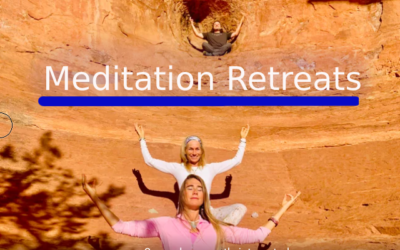Many of us enjoy writing in a diary, reading autobiographies or nostalgically reflecting with others about past times.
Why is remembering our past so important? Are there downsides? And what can we do if dwelling on the past bothers us?
Memories make us human
Over several decades, researchers have shown remembering your past is fundamental to being human, and has four important roles.
1. Memories help form our identity
Our personal memories give us a sense of continuity — the same person (or sense of self) moving through time. They provide important details of who we are and who we would like to be.
2. Memories help us solve problems
Memories offer us potential solutions to current problems and help guide and direct us when solving them.
3. Memories make us social
Personal memories are essential for social interactions. Being able to recall personal memories provides important material when making new friends, forming relationships and maintaining ones we already have.
4. Memories help us regulate our emotions
Our memories provide examples of similar situations we’ve been in before. This allows us to reflect on how we managed that emotion before and what we can learn from that experience.
Such memories can also help us manage strong negative emotions. For example, when someone is feeling sad they can take time to dwell on a positive memory to improve their mood.
Memories help us function in our wider society
Dwelling on our personal memories not only helps us as individuals. It also allows us to operate in our socio-cultural context; society and culture influence the way we remember our past.
For instance, in Western individualistic cultures people tend to recall memories that are long, specific, detailed and focus on the individual.
In contrast, in East Asian cultures people tend to recall more general memories focusing on social interactions and significant others. Researchers have seen these differences in children and adults.
Indeed, the way parents discuss past events with their children differs culturally.
Parents from Western cultures focus more on the child and the child’s thoughts and emotions than East Asian parents. So, there are even cultural differences in the ways we teach our children to dwell on the past.
People from Western individualistic cultures tend to recollect specific unique memories that reaffirm someone’s uniqueness, a value emphasised in Western cultures. In contrast, in East Asian cultures memories function to assist with relatedness and social connection, a value emphasised in East Asian cultures.
Memories and ill health
As dwelling on the past plays such a crucial role in how we function as humans, it is unsurprising that disruptions in how we remember arise in several psychological disorders.
People with depression, for instance, tend to remember more negative personal memories and fewer positive personal memories than those without depression. For example, someone with depression may remember failing an exam rather than remembering their academic successes.
People with depression also have great difficulty remembering something from a specific time and place, for instance “I really enjoyed going to Sam’s party last Thursday”. Instead they provide memories of general experiences, for instance, “I like going to parties”.
We have found people with depression also tend to structure their life story differently and report more negative life stories. They also tend to remember periods of their life, such as going to university, as either distinctly positive or negative (rather than a combination of both).
Disturbances in memory are also the hallmarks of post-traumatic stress disorder. This is when unwanted, distressing personal memories of the trauma spontaneously pop into the mind.
People with anxiety disorders also tend to have biases when remembering their personal past. For instance, all of us, unfortunately, experience social blunders from time to time, such as tripping getting onto a bus or spilling a drink at a party. However, people with social anxiety are more likely to be consumed with feelings of embarrassment and shame when remembering these experiences.
Finally, an excessive, repetitive dwelling on your past, without generating solutions, can be unhelpful. It can result in emotional distress and in extreme instances, emotional disorders, such as depression, anxiety and post-traumatic stress disorder.
I don’t want to dwell on the past. What can I do?
If dwelling on the past bothers you, these practical tips can help.
Set aside a certain time of the day for your memories. You could write in a diary or write down your worries. Writing about important personal experiences in an emotional way for as little as 15 minutes a day can improve your mental and physical health.
Practice remembering specific positive memories from your past. This can allow you to engage differently with your memories and gain a new perspective on your memories.
Learn and practise mindfulness strategies. Instead of dwelling on painful memories, a focus on the present moment (such as attending to your breath, focusing on what you can currently see, smell or hear) can help break a negative cycle
When dwelling on past memories try being proactive and generate ideas to solve problems rather than just being passive.
Senior Lecturer in Clinical Psychology, Monash University
This article first appeared in https://theconversation.com/why-do-i-dwell-on-the-past-121630
Everything You Need to About Short Term Memory But Forgot to Ask
Short-term memory has several key characteristics and limitations, especially when it comes to interruptions: 1. Limited capacity: Short-term memory can typically hold only about 7 (+/- 2) items at a time. This limited capacity makes it vulnerable to disruption when...
Trading Psychology and How to Improve Yours
Trading psychology is a critical aspect of successful investing that often goes overlooked by novice traders. Understanding the psychological factors that influence trading decisions can be the difference between consistent profits and devastating losses. In this...
The Evolutionary and Psychological Challenges of Stock Trading
Stock trading is a complex activity that challenges our cognitive abilities and emotional control. Despite the potential for significant financial gains, many individuals struggle to succeed in this arena. The reasons for these difficulties are deeply rooted in our...
Why You Should Go On A Meditation Retreat
Finding moments of true peace and stillness can seem like an impossible task. The constant barrage of notifications, deadlines, and social obligations can leave us feeling drained, anxious, and disconnected from ourselves. This is where meditation retreats come in -...
100 Best Audiobooks on Behavioral Economics, Psychology, Meditation, Self-improvement
100 top non-fiction audiobooks on behavioral economics, psychology, meditation, self-improvement 1. Thinking, Fast and Slow by Daniel Kahneman 2. Atomic Habits by James Clear 3. The Power of Habit by Charles Duhigg 4. Nudge by Richard H. Thaler and Cass R. Sunstein 5....
Top 22 Best Audiobooks Focused on Mental Health and Self-improvement
With the huge selection of audiobooks on mental health and self-improvement, it can be a difficulty finding a few books that are highly recommended. Below is a list of the most popular and effective books for psychological betterment. 1. The 7 Habits of Highly...
“The Art of Stealth: How Viet Cong Sappers Cultivated a Mindset of Invisibility”
A Viet Cong sapper was a highly trained and elite commando unit that operated during the Vietnam War. Role and Tactics - Sappers were specialized units that conducted covert operations, infiltrations, and attacks on enemy positions. - Their primary missions included:...
Why so Many School Shootings? The Tragedy of School Shootings in America: A Look into the Deadliest Incidents and the Minds Behind Them
In the annals of American history, few events have left as deep and lasting a scar on the national psyche as school shootings. These tragic incidents have not only claimed countless innocent lives but have also fundamentally altered the way we view educational...
How PTSD Was Cured Four Times in 5 Hours
This case study shows how a non-drug intervention can be successfully used to cure PTSD in a Vietnam veteran in under 5 hours. 'Carl, our pseudonymous client, met criteria for at least one Diagnostic and Statistical Manual of Mental Disorders (DSM IV) Criterion A...
How the Lion’s Gate Portal Can Benefit You
The Lion's Gate Portal, particularly on days like August 8th, offers a unique opportunity for personal growth, regardless of one's belief in its astrological significance. This period combines elements of positivity, the placebo effect, and manifestation practices,...
Greatest Advert of All Time – How The Cadbury Gorilla Became a Drumming Sensation That Revolutionized Advertising
This advert has been named "The Best Ad Ever". It turned an entire company around from a disaster -- and is the most memorable ad ever. Here's the breakdown: 1. Declining sales - After a salmonella outbreak, Cadbury's had to recall 1 million chocolate bars. It costs...
Ways to Your Impact Your Business with AI: Transforming Industries and Operations
Artificial Intelligence (AI) has emerged as a transformative force in the business world, revolutionizing workflows, methodologies, and entire industries. By mimicking human intelligence through sophisticated algorithms and technologies, AI is reshaping how companies...
What is a “Woke Mind Virus”: Unpacking a Concept in Modern Discourse
In recent years, the term "woke mind virus" has ignited intense debates across political and cultural landscapes. But what does it really mean? Where did it originate? And why is it causing such a stir? In this article, we'll break down the concept, explore its...
Summary of Elon Musk & Dr Jordan Peterson interview – The Woke Mind Virus is a Threat to Civilization
In a discussion between Dr. Jordan B. Peterson and Elon Musk. Musk and Peterson speak about the concept of the "woke mind virus" and its implications for society. Here is Elon Musk talking about losing his son to the woke mind virus. Here is a short clip & a...
The 5-Day Re-Invent Meditation Retreat in Sedona, Arizona
Nestled in the heart of Sedona, Arizona, a transformative experience awaits those seeking to reconnect with their inner selves and tap into the powerful energies of the Earth. The 5-Day Re-Invent Meditation Retreat offers a unique blend of Kundalini Yoga, vortex...
Top Audiobook Recommendations of Elon Musk.
Elon Musk replied to a tweet that had asked for audiobook recommendations. The Story of Civilization by DurantIliad (Penguin Edition)The Road to Serfdom by HayekAmerican Caesar by ManchesterMasters of Doom by KushnerThe Wages of Destruction by ToozeThe Storm of Steel...
What are Valuable Skills to Build Now and For the Future?
The skills required for success in the workplace are constantly changing. As we navigate through 2024 and look towards the future, it's crucial to understand which skills are most valuable now and which will become increasingly important in the years to come. This...
The Impact of TikTok on Mental Health: A Comprehensive Analysis
TikTok has emerged as one of the most popular social media platforms, particularly among younger generations. With its short-form video content and highly engaging algorithm, TikTok has captured the attention of millions worldwide. However, as with any social media...































